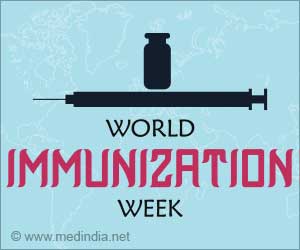A recent research has found that a new type of engineered drug may have the potential to treat chronic lymphocytic leukaemia.
The study by researchers at the Ohio State University Comprehensive Cancer Center was published online in the journal Blood.The research has established that an engineered drug candidate is promising in treating lymphocytic leukemia in both test tube and early animal tests.
The agent represents a new class of agents called small modular immunopharmaceuticals. This agent, which is called CD37-SMIP, targets a protein called CD37 on the surface of these leukemia cells.
The study shows that the agent can successfully attach to the protein on the leukemia cells and destroy them. It works both by activating the cells' self-destruction and by causing a particular class of immune cells to attack them.
In an animal model, the agent worked uniformly over and above the drug rituximab, now routinely used to treat chronic lymphocytic leukemia (CLL) patients. Rituximab targets a different protein on leukemia cells.
"Our findings have significant implications for the treatment of CLL and related malignancies," says principal investigator John C. Byrd, director of the hematologic malignancies program at Ohio State 's James Cancer Hospital and Solove Research Institute.
Advertisement
The laboratory portion of the study used CLL cells from patients, laboratory-grown non-Hodgkin's lymphoma cells and acute lymphocytic leukemia cells.
Advertisement
The study also found that this self-destruction happens differently from how other drugs cause apoptosis. Most drugs cause cells to self-destruct by triggering a cell mechanism that requires enzymes called caspases. This new agent, however, works through a mechanism that does not call for caspases.
"This is exciting because it means that this agent may benefit patients who are resistant to other CLL drugs," says co-author Natarajan Muthusamy, a research scientist with Ohio State's Comprehensive Cancer Center. "It also suggests that it might work well in combination with other drugs, as well as alone."
The findings also show that after the agent joins with the cancer cells, it attracts immune cells called natural killer cells, which also devastate the leukemia cells.
Source-ANI
LIN/M






